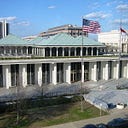Berger Calls on Cooper to Allow Counties to Reopen Hair Salons and Barber Shops
Raleigh, N.C. — Senate Leader Phil Berger (R-Rockingham) today called on Governor Roy Cooper to grant counties local flexibility to reopen hair salons and barber shops.
Twenty-five states, including nearly every state in the Southeast, have reopened hair salons and barber shops in some capacity, and three more have announced reopenings in the next few days.
Hair salons and barber shops are primarily small businesses, and Gov. Cooper’s executive orders have prohibited them from earning a living. At the same time, hundreds of thousands of unemployment applications are still unpaid by the Cooper Administration. Hair salon and barber shop employees and owners can’t pay rent or buy groceries with no income and months-long unemployment assistance delays.
Sen. Berger said, “It’s time to follow the lead of the majority of states in our region and the country. Hair salon owners and employees can’t work and many of them still can’t get unemployment assistance from the Cooper Administration. Gov. Cooper needs to provide counties with the flexibility to reopen hair salons and barber shops if they choose.”
Sen. Berger continued, “The majority of states in our region and the country have reviewed the science, facts, and data and reached a different conclusion than Gov. Cooper’s. What is his strategic endgame in choosing a different path based on similar facts and data? We need a view into his administration’s goals and thinking.”
Sen. Bill Rabon (R-Brunswick) said, “Gov. Cooper can’t have it both ways. He can’t prohibit people from working, and then fail to provide the unemployment assistance that people are due.”
Up to now, Gov. Cooper’s position has been to subject small business owners to fines and arrest. It’s time to take a different approach and let these small business owners and employees return to work legally and safely.
Counties should be permitted to reopen hair salons and barber shops provided they adhere to common-sense public health rules similar to those in other states. Some of those rules include:
- Scheduling customers by appointment only;
- Declining customers and sending employees home who have COVID-like symptoms;
- Requiring employees and customers to wear masks;
- Removing communal materials like magazines;
- Cleaning and disinfecting equipment after each use.
